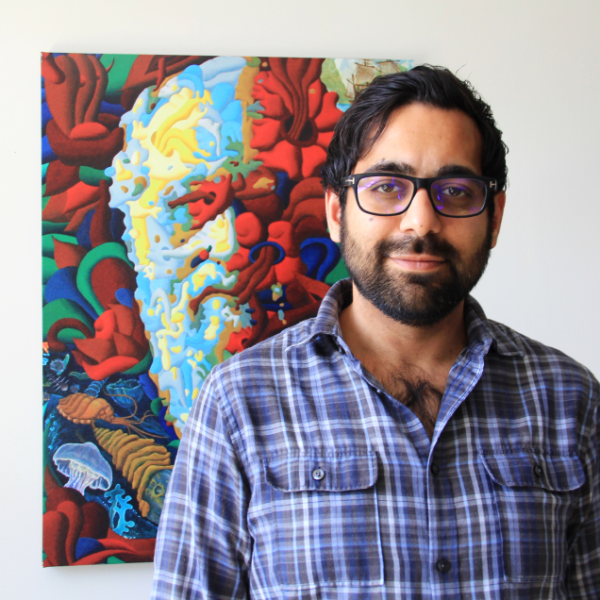Advertisement
Commentary
You don't have to be a vegan to save the Earth

Most people recognize that factory farming is a moral problem. Nearly 70% of Americans have “some discomfort with the way animals are used in the food industry.” Animal agriculture is also responsible for at least one-sixth of global greenhouse gas emissions.
But many people think that going vegetarian or vegan is too demanding — and too annoying — to be sustainable.
So what's an ethical, burger-loving consumer to do?
A lot, it turns out. Reducing your consumption of animal products (even if you don't completely abstain) — and doing so in a public, unabashed way — is key to eliminating factory farming, according to a wealth of research in our fields of cognitive science and ethics. Your personal dietary choices can inspire others to follow suit, thereby transforming the industrial food system.
Humans are social creatures, deeply influenced by the attitudes and behavior of those around them. People are more likely to follow new norms once they discover that others do as well. Like infectious diseases, thoughts and behaviors spread across social networks. Members of one’s community shape one’s propensity to vote, smoke, get a divorce, cooperate with others, and, yes, even consume certain foods. The behavior of those eating with you can influence your own food consumption, but so can the mere perception that a new dietary habit is trending.
So what's an ethical, burger-loving consumer to do?
In a 2017 study, for example, researchers tracked the meal purchases of over 300 people at a Stanford University cafe who were asked to fill out a survey while waiting in line. Some patrons were told that a fixed minority of Americans reduce their meat consumption. Others were told that these people represent an increasing trend in those avoiding meat. Patrons in the latter group were almost twice as likely to order vegetarian meals when they reached the cashier.
Durably reducing your own consumption of animal products — for example, through a vegan or vegetarian diet — offers “social proof” of its viability. It demonstrates to those around you that a plant-based diet is consistent with being healthy and enjoying the food on your plate. You just have to put your morals where your mouth is.
Reducing the number of factory farms — and the number of animals mistreated on them — requires changing laws and policies too. But individual behavior and systemic change work best together and reinforce one another. In large numbers, ordinary people can change the demand signals for animal products, reduce the financial incentives for corporations to sustain factory farms and provide measurable proof to politicians that constituents want change.
Advertisement
Studies have shown that negative attitudes toward vegetarians stem from anticipated moral reproach.
Social influence can grind to a screeching halt, however, if either of two wrenches is tossed in the works.
The first is the snobby vegetarian. Moral superiority not only turns people off, it makes them defensive. Studies have shown that negative attitudes toward vegetarians stem from anticipated moral reproach. We care so deeply about seeing ourselves as moral that a mere whiff of virtue signaling or grandstanding puts one’s guard up. Even scientific reports about a single hamburger’s carbon footprint are readily seen as attempting to "shame people for having a summer barbecue."
The second problem is the unsuccessful vegetarian whose backsliding serves as proof to others that farmed animals are a normal, natural and necessary part of the human diet. The vast majority of vegetarians and vegans — around 80% — end up returning to an omnivorous diet. Onlookers reasonably wonder: If the effort is doomed to failure, why bother?
Fortunately, a single solution protects against these two threats to social influence: embracing impurity.
It makes sense that morally-motivated vegetarians or vegans would want to eliminate animals or animal products from their diet. But such purity is difficult to maintain and alienates those who do not, or cannot, adhere to strict diets. For most people, the best bet may be to become a “reducetarian,” a flexible eater who progressively minimizes their consumption of meat and other animal products.
Identifying as a 'pure' vegan or vegetarian, in contrast, draws a boundary between 'us' and 'them.'
Reducing can take many forms, though a simple rule is easier to follow. The influential food writer Michael Pollan wisely proposes that people “eat mostly plants.” Jonathan Safran Foer encourages the more precise policy of only eating animal products with dinner. Since most meals imbued with social significance occur in the evening, one needn’t feel excluded or alienated from culturally important events.
If giving up meat at breakfast and lunch works, you might think about eating meat only on weekends, as Jenny Rosenstrach promotes in her new cookbook The Weekday Vegetarians. Then try eating only fish, and only on weekends. Then eggs. Then dairy. If you can’t go without the occasional burger, that’s fine! You can still cut back on everything else. You can take incremental steps over time, and still be a reducetarian who (like us) is open to eating meat during holiday feasts with family. But it does mean visible adjustments to your lunch orders and to what you bring to the potluck.
Publicly demonstrating one’s restricted diet needn’t be an effort to prove one’s own moral credentials but rather, to avoid hiding them. Modest reducers neither flaunt nor conceal their dietary restrictions. They are more pro-plant than anti-meat. Identifying as a “pure” vegan or vegetarian, in contrast, draws a boundary between “us” and “them.” Meat-avoiders stick out from the crowd, and meat-eaters feel judged. Greater camaraderie protects against defensiveness among omnivores and alienation among reducers, a leading cause of backsliding.
Whatever the particular method, the solution to the problem of purity is to give it up. Reducetarianism is impure, but it’s feasible, sustainable and welcoming. When public, it proves to others that a more ethical diet is something we can all strive for, as imperfect, but improving, human beings. No mandates, shaming, or bullying; just positive social contagion. But it all starts with our own mouths — with what we say, and what we put in them.

